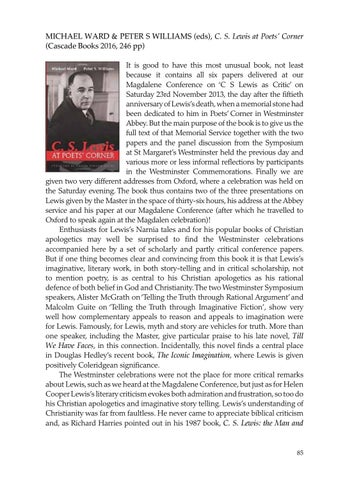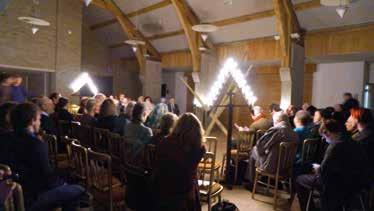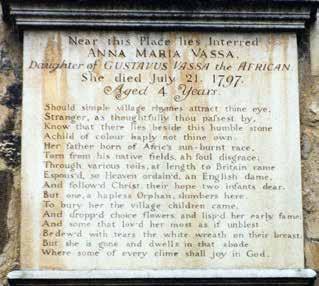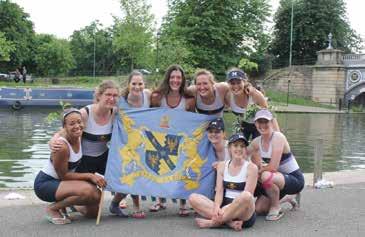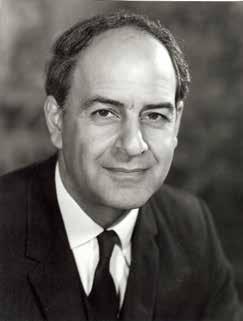MICHAEL WARD & PETER S WILLIAMS (eds), C. S. Lewis at Poets’ Corner (Cascade Books 2016, 246 pp) It is good to have this most unusual book, not least because it contains all six papers delivered at our Magdalene Conference on ‘C S Lewis as Critic’ on Saturday 23rd November 2013, the day after the fiftieth anniversary of Lewis’s death, when a memorial stone had been dedicated to him in Poets’ Corner in Westminster Abbey. But the main purpose of the book is to give us the full text of that Memorial Service together with the two papers and the panel discussion from the Symposium at St Margaret’s Westminster held the previous day and various more or less informal reflections by participants in the Westminster Commemorations. Finally we are given two very different addresses from Oxford, where a celebration was held on the Saturday evening. The book thus contains two of the three presentations on Lewis given by the Master in the space of thirty-six hours, his address at the Abbey service and his paper at our Magdalene Conference (after which he travelled to Oxford to speak again at the Magdalen celebration)! Enthusiasts for Lewis’s Narnia tales and for his popular books of Christian apologetics may well be surprised to find the Westminster celebrations accompanied here by a set of scholarly and partly critical conference papers. But if one thing becomes clear and convincing from this book it is that Lewis’s imaginative, literary work, in both story-telling and in critical scholarship, not to mention poetry, is as central to his Christian apologetics as his rational defence of both belief in God and Christianity. The two Westminster Symposium speakers, Alister McGrath on ‘Telling the Truth through Rational Argument’ and Malcolm Guite on ‘Telling the Truth through Imaginative Fiction’, show very well how complementary appeals to reason and appeals to imagination were for Lewis. Famously, for Lewis, myth and story are vehicles for truth. More than one speaker, including the Master, give particular praise to his late novel, Till We Have Faces, in this connection. Incidentally, this novel finds a central place in Douglas Hedley’s recent book, The Iconic Imagination, where Lewis is given positively Coleridgean significance. The Westminster celebrations were not the place for more critical remarks about Lewis, such as we heard at the Magdalene Conference, but just as for Helen Cooper Lewis’s literary criticism evokes both admiration and frustration, so too do his Christian apologetics and imaginative story telling. Lewis’s understanding of Christianity was far from faultless. He never came to appreciate biblical criticism and, as Richard Harries pointed out in his 1987 book, C. S. Lewis: the Man and
85
